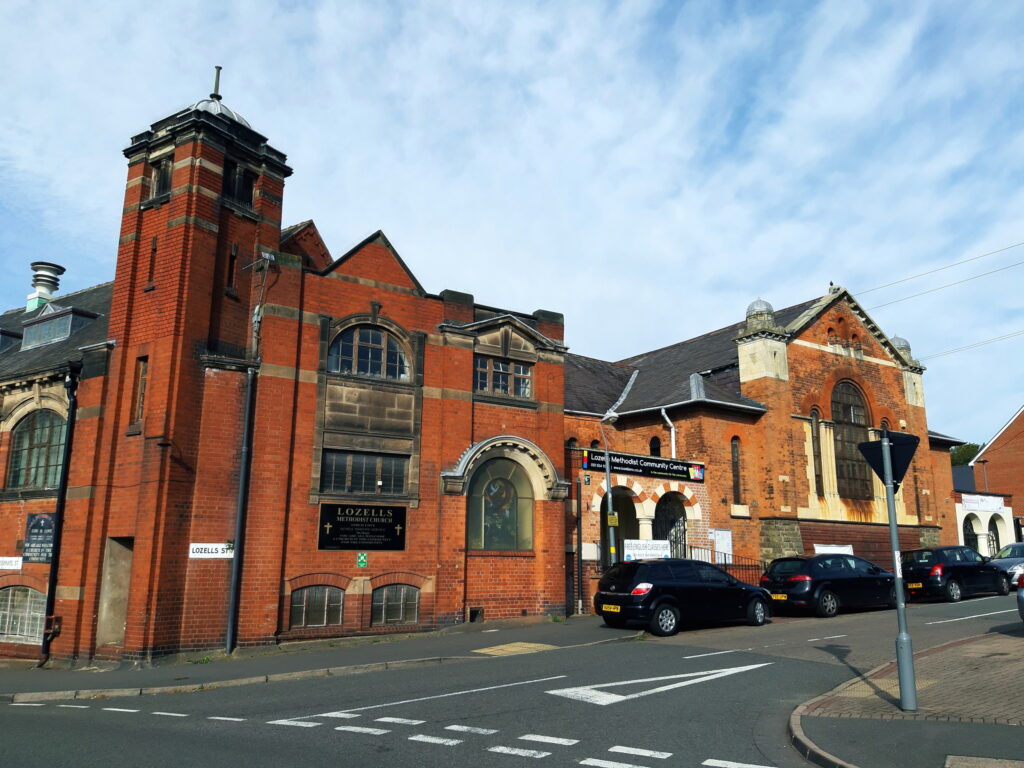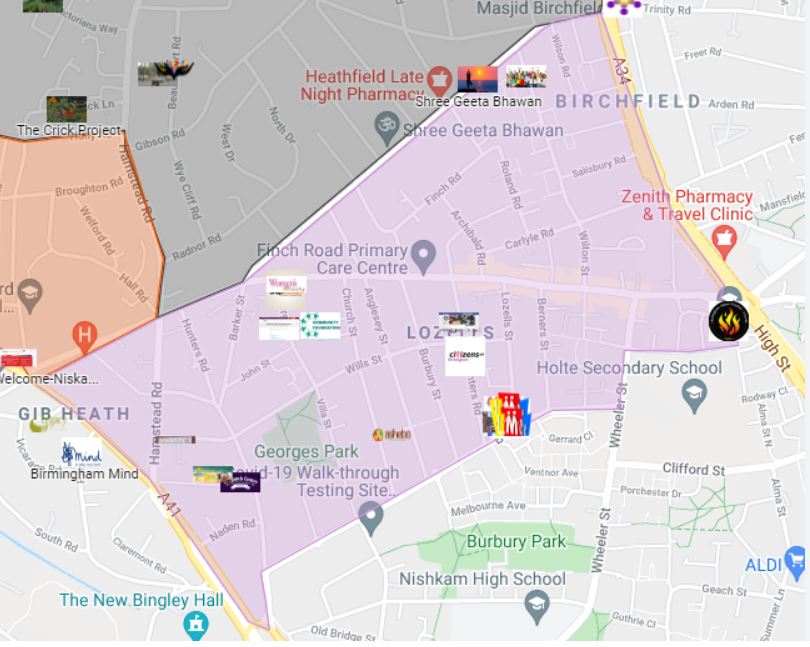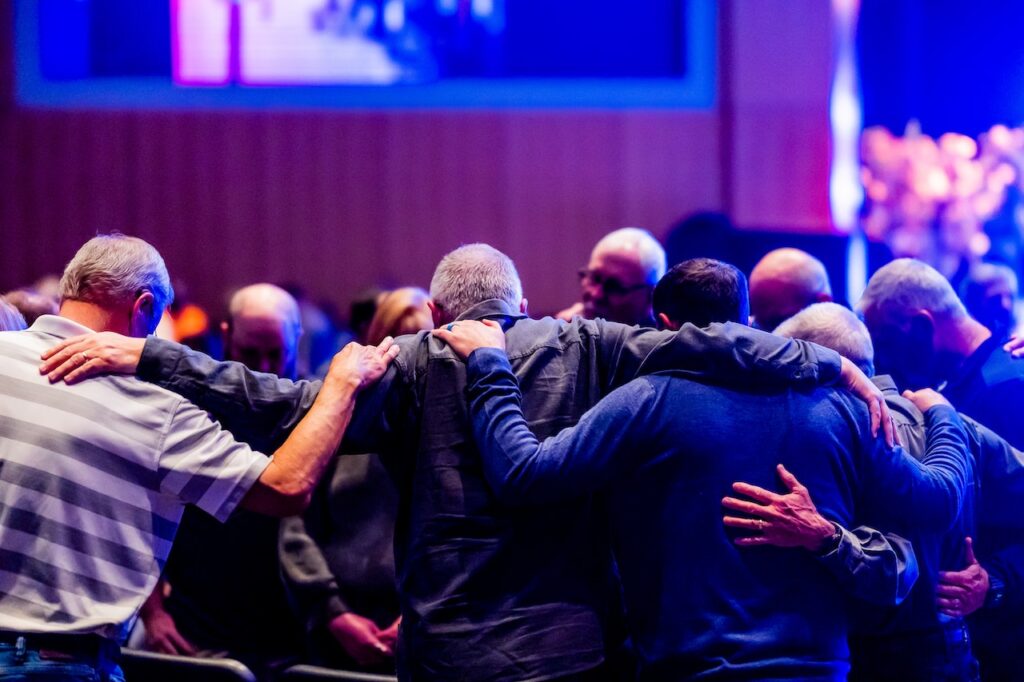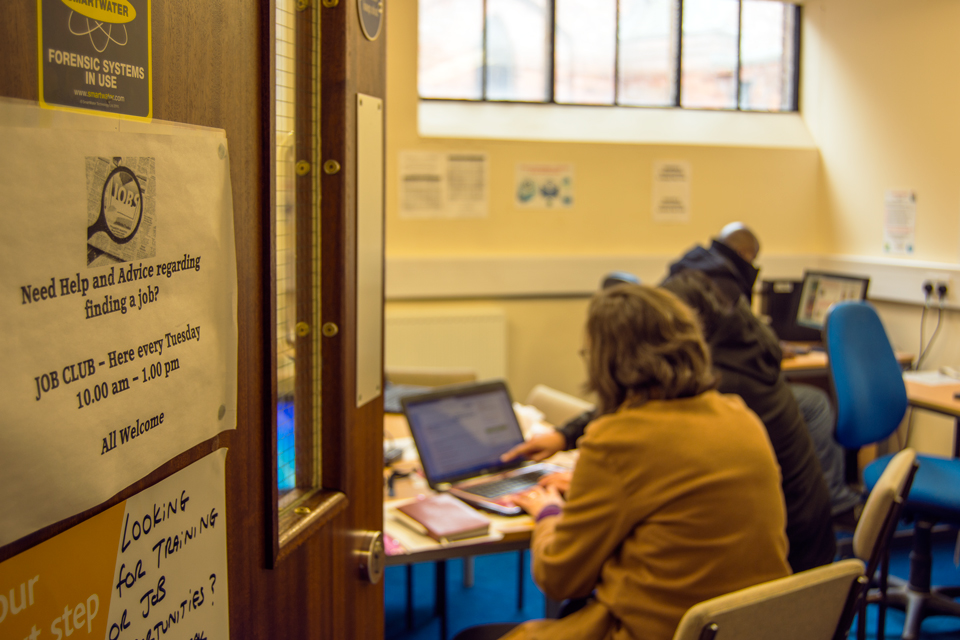In my last post, I wrote about why we should be actively and regularly doing one-to-one meetings, and how to do it effectively. In this second part, I will be using a personal story of how I used one-to-ones in my church.
The Power of One-to-One Meetings in the Church at Lozells.

I’m a member of Lozells Methodist Church and Community Centre, where I worked for over ten years in various roles in both the church and circuit. I started as the centre’s resident artist and where I rose to the position of centre manager.
Lozells
The church is based in Lozells, one of Birmingham’s inner city neighbourhoods, located on the north west side of the city. According to UK Office for National Statistics, as at 2021, the population of the ward is 12,100, making it the 3rd smallest in Birmingham. The population of the Lozells ward is younger than the overall population of the city, and it has a higher proportion of black and minority ethnic (BAME) people.

The ward is among the most deprived in the city, with an average income of 8th lowest out of 69 in the whole city. The resident employment rate in the ward is significantly lower than the overall city average, and the unemployment rate is significantly higher than the Birmingham average. Lozells Ward is ranked 3rd on the indices of multiple deprivation in Birmingham and 55th Nationally.
The church congregation, like most churches now, is ageing, thus lacking in capacity, but is eager to play a role in its community. But, it struggled in understanding how to make the necessary change happen, and attracting interest by the community to engage with its church and new community centre. The church had a vision of becoming a ‘church in the community for the community’ but struggled to achieve it. However, shortly after attending meetings, observing the strategies, and practices used in undertaking various campaigns for action for change with Citizens UK, and attending its national six-day residential training on organising and leadership, I immediately saw how the church could use community organising practices in Lozells to develop the church and community centre.
Before now, the church was well established and functioning, while the community centre was relatively new. But based in a predominantly Muslim community, and we faced challenges in engaging and encouraging the community to interact with us and use the services, projects, and activities we provided. Our church congregation was not involved and felt that the centre was a separate entity from the church and its activities. They were also mainly unaware of the issues and problems facing the community. Likewise, the community had the general mindset that we only offered services and activities for Christians alone. We had to start by creating opportunities for the church and the community to dialogue with each other, this became the initial focus of our organising activities, or should I say, disorganising to re-organise.
Introduction of Community Organising to Church Leaders and Centre Staff.
I started working with the minister, some of the church leaders, and centre staff by sensitising them about organising, the power of one-to-ones, how to conduct them, and why we should be doing them. Our minister, being the person who exposed me to community organising and encouraged me to go for Citizens UK meetings, welcomed the idea. But, the congregation expressed initial scepticism of the concept and its practices with an argument that these practices were being done through other means like, the church’s use of usual, signage, leafleting, and coffee mornings that was nothing but a social gathering for church members at the time. It then became necessary for me to show, by example, how this could potentially and positively be an effective means to change.

Working collaboratively with the minister, we began by conducting one-to-one meetings with leaders in the community, and sharing my experiences and outcomes with our church leaders.
The information shared were not personal, they were more about the influence that these people held in the decision making processes in Lozells, their concerns about the problems in the community, and how they felt that we could collaboratively use our resources together to change the situation. This helped, to a large extent, to encourage the leaders and staff of the church and centre in understanding the power and potential of using this practice as a catalyst for desired change to happen. I also attended community events that I was invited to or discovered through my one-to-one meetings with these leaders. At these events, I made sure I contributed and represented the church. I shared, who we were and what we did that would be of benefit to the community. I made a point to invite and host community events at the church/centre at no or extra cost to them.
Now that I had my minister and the staff at the centre working collaboratively on board, we made one-to-ones a culture amongst ourselves and the community, and invited our church leaders to these community meetings that we hosted. And so, we began to listen and gather helpful information about our church and community. We started to find together, what we and the community cared about, hoped for, and what we could do about it.
The impact of our one-to-ones and what we learnt.

From active one-to-one meetings, we built relationships with influential leaders in the community. We connected them with our church, faith leaders, local councillors, West Midlands Police, School heads, Birmingham City Council, and
partners who use our building for office space and community project delivery. As a result, our church got invitations to community-centred meetings like, our local neighbourhood forum, police meetings, council planning meetings, etc. We also used this opportunity to continue to offer to host community events at our church, most times for free. Within a short time, this gave us the necessary exposure to make us a popular community hub in Lozells. Through these meetings, we increased the foot fall to our building, gained more knowledge of ourselves, our community and started building collective power.
We learnt that Lozells struggled with issues like, unemployment, crime, domestic violence, drug abuse, anti-social behaviour, etc. And though diverse in ethnicity and faith, we had the powerful potential to make changes, and what is more, we as a church and community wanted to support and contribute to making these changes happen.
Not only that, we discovered what resources we could commit to solving some urgent issues and where we could get other leaders and resources (grant funding, referrals, etc.) to build greater power and successfully win in our actions for change.
One of many examples
Using an example to show the power of one-to-one meetings in gathering the necessary information and helping in the change process, we understood that community and church members were concerned about the high unemployment rate and weak job search support.
My one-to-one meetings targeted leaders with similar interests in solving unemployment issues. For example, I set up meetings with the director of Birmingham Ethnic Education and Advisory Services, who provides an ESOL (an English language course) for students in the area and who has their central office based in the church, our local councillor, the job centres in Handsworth and Perry Barr, and Jericho Foundation; an organisation who, aside from their other charitable activities, were pioneering in organising and bringing together all charity employability services and projects in Birmingham for shared understanding and mutual benefit. And for good measure, various community members with lived unemployment experience and those that have had negative experience from various job centres in Birmingham. Together we discovered a severe need for extra employability services because no other service existed in the area; we, as a church, could offer the space, manage the project, and organise volunteers.
A case study: Lozells Job Club & Advisory Service.

Through our growing popularity and one-to-one meetings, we discovered a volunteer and a community leader (a retired person who worked previously in social services) who supported and pioneered the setting up and running of a weekly Job club.
He shared his personal stories of how others around him experienced the negative effects of inadequate employability training, poor service provision by the local Job Centres and the unfair sanctions on their benefits that people in the area were experiencing. And especially the negative impact it had on single mothers and vulnerable people. And he felt he could do something about it, and he saw the potential impact of working collaboratively with the church to solve this challenge.
The job club received validation from all stakeholders in the community and started providing job search support, employability training, and job search support. It received funding from several sources, including the Birmingham Methodist Circuit, Birmingham District, Connexion, the national lottery fund, just to name a few. One-to-one meetings and listening to participants of our job club identified more issues with debts, benefits, and housing. Thus, proving that our relational meetings were helping us to identify the core issues affecting the community. This eventually led us to employing a benefits adviser, whose salary was funded through grants. He has since been actively working alongside the job club to provide advisory and some advocacy services on housing, benefits, and related issues.
The impact over time on the church, was that, it became more active and visible in the community and increased in confidence, ability, and power in advocating for social justice issues. The church is also more diverse and inclusive as more people from different backgrounds visit and attend the events of the community centre and church. The congregation also got more involved in the work at the centre, volunteering and sharing actively in God’s work.
Conclusively, the one-to-one meetings were the catalyst for this transformation. They helped to build a foundation for positive relationships that builds power, teams with common interests, that led to action, that led to change, that led to growth.
It is an essential tool that will help churches build strong and thriving congregations. By focusing on building relationships of the effective kind, churches can empower their members to take action for positive change and justice. Through effective one-to-one meetings, churches can identify the needs and passions of their community members and work together to address them. The story of Lozells Methodist Church and Community Centre demonstrates how one-to-one meetings can lead to transformative outcomes, fostering a more active, diverse, and inclusive church that advocates for social justice and makes a meaningful impact in the community and the church’s overall mission. As churches embrace community organising principles and prioritise one-to-one meetings, they can strengthen their mission and positively impact the world around them. And I have no doubt that other Methodist churches and all other faith groups can achieve the same or even better results by actively and intentionally doing one-to-one meetings.

Leave a Reply